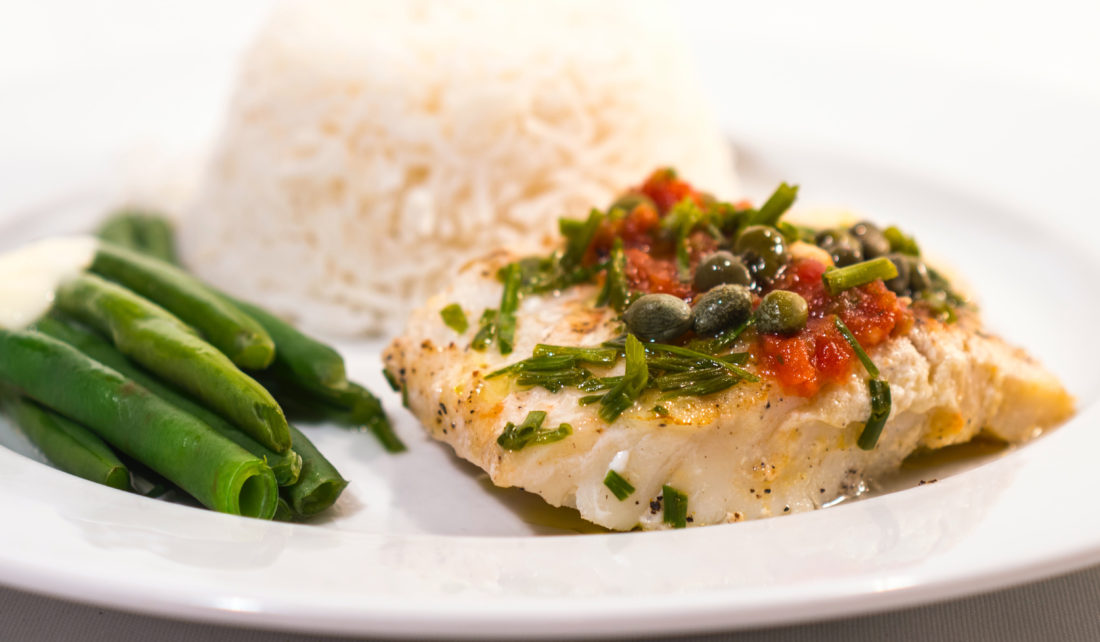
The Great Lakes Aquaculture Collaborative was awarded $425,000 by the National Sea Grant Office to advance land-based aquaculture in the Great Lakes region.
The Great Lakes Aquaculture Collaborative (GLAC), led by Minnesota Sea Grant, supports an environmentally responsible, competitive and sustainable aquaculture industry in the Great Lakes region. Formed in 2019, the Aquaculture Collaborative is one of 11 Sea Grant research projects and collaborative programs that received National Sea Grant funding totaling $4.7 million aimed at advancing sustainable aquaculture.
“The focus of Illinois-Indiana Sea Grant and GLAC’s aquaculture work is on sustainable farming in the Great Lakes region that does not negatively impact the environment,” said project participant and regional Aquaculture Marketing Outreach Associate Amy Shambach. “We’re excited that the Great Lakes Aquaculture Collaborative was awarded additional funds, which will allow us to continue to build on the great work that has been done over the last three years while opening doors to collaborate with new partners. We plan to work with the National Sea Grant Law Center, to take a deep dive into how aquaculture regulations are implemented in the Great Lakes region, and strengthen existing relationships with regional producers and state aquaculture associations by supporting industry events in each state.”
“Our aquaculture program has grown significantly over the last several years as we’ve invested in research, outreach and education,” added Stuart Carlton, assistant director of Illinois-Indiana Sea Grant. “The Great Lakes Aquaculture Collaborative is a key part of our efforts, and we’re excited to work with this regional team focusing on environmentally responsible, land-based aquaculture.”
Great Lakes states are not keeping pace with increases in consumer demand for fish and seafood, which contributes to a $17 billion national seafood trade deficit. Starting in 2019 and continuing today, the Great Lakes Aquaculture Collaborative has held region-wide workshops and training opportunities, created an aquaculture farm tour video series, funded and published research on consumer demand for aquaculture products and created a dedicated website.
The new funding will support ongoing and new activities:
- Linking aquaculture producers to state and national aquaculture organizations and supporting producers, students, and researchers from historically marginalized communities to attend and present at state and national aquaculture meetings.
- Continuing collaborations with aquaculture industry advisory groups from Great Lakes states to solicit feedback on progress and outcomes and understand state-specific industry needs.
- Informing Great Lakes legislators about what aquaculture is and the elements of a sustainable regional aquaculture industry.
- Comparing aquaculture laws and regulations among states within the Great Lakes region to determine how agencies interpret and implement these rules.
- Fostering synergies among private, state, and tribal organizations to jointly address seafood supply-chain challenges in the aquaculture and commercial fishing industries.
- Developing research questions that address priority areas of need for aquaculture producers that may be funded by Great Lakes Sea Grant programs.
“These investments demonstrate Sea Grant’s commitment to sustainably growing U.S. aquaculture throughout coastal and Great Lakes communities,” said Jonathan Pennock, director of NOAA’s National Sea Grant College Program. “The funded projects, which address a variety of challenges, will ensure that growth of the aquaculture sector will be informed by the latest science and community needs.”
Illinois-Indiana Sea Grant is a partnership between NOAA, University of Illinois Extension, and Purdue University Forestry and Natural Resources, bringing science together with communities for solutions that work. Sea Grant is a network of 34 science, education and outreach programs located in every coastal and Great Lakes state, Lake Champlain, Puerto Rico and Guam.
ADDITIONAL INFORMATION:
- NOAA Sea Grant news release
- NOAA Sea Grant and Aquaculture
- Sea Grant Great Lakes FreshFishFinder.org
- Great Lakes Aquaculture Collaborative
CONTACTS:
- Minnesota Sea Grant
- Amy Schrank, Minnesota Sea Grant; Fisheries and Aquaculture Extension Educator, aschrank@edu, 612-301-1526
- Donald Schreiner, Fisheries Specialist, schr0941@d.umn.edu, 218-726-7375
- Marie Thoms, Communication Manager, Minnesota Sea Grant, methoms@d.umn.edu, office: 218-726-8710
- Illinois-Indiana Sea Grant
- Stuart Carlton, Assistant Director, Illinois-Indiana Sea Grant, carltons@purdue.edu, 765-494-3726
- Amy Shambach, Aquaculture Marketing Outreach Associate, ashambac@purdue.edu, 765-496-4085
- Lake Champlain Sea Grant
- Theodore Willis, Aquaculture Education Specialist, theodore.willis@uwm.edu, 207-894-4537
- Ohio Sea Grant
- Nicole Wright, Aquaculture Extension Educator, wright.1128@osu.edu, 614-292-8949
- Michigan Sea Grant
- Lauren Jescovitch, Extension Educator, jescovit@msu.edu, 570-687-6818
- Elliot Nelson, Extension Educator, Michigan Sea Grant, Elliotne@msu.edu, 906-322-0353
- National Sea Grant Law Center
- Stephanie Otts, Director, sshowalt@olemiss.edu, 662-915-771
- New York Sea Grant
- Emma Forbes, Aquaculture Specialist, ef375@cornell.edu, 914-285-4620
- Wisconsin Sea Grant
- Emma Hauser, Aquaculture Outreach & Education Specialist, ehauser@uwsp.edu, 715-779-3262
- Titus Seilheimer, Fisheries Outreach Specialist, tseilheimer@aqua.wisc.edu, 920-683-4697

